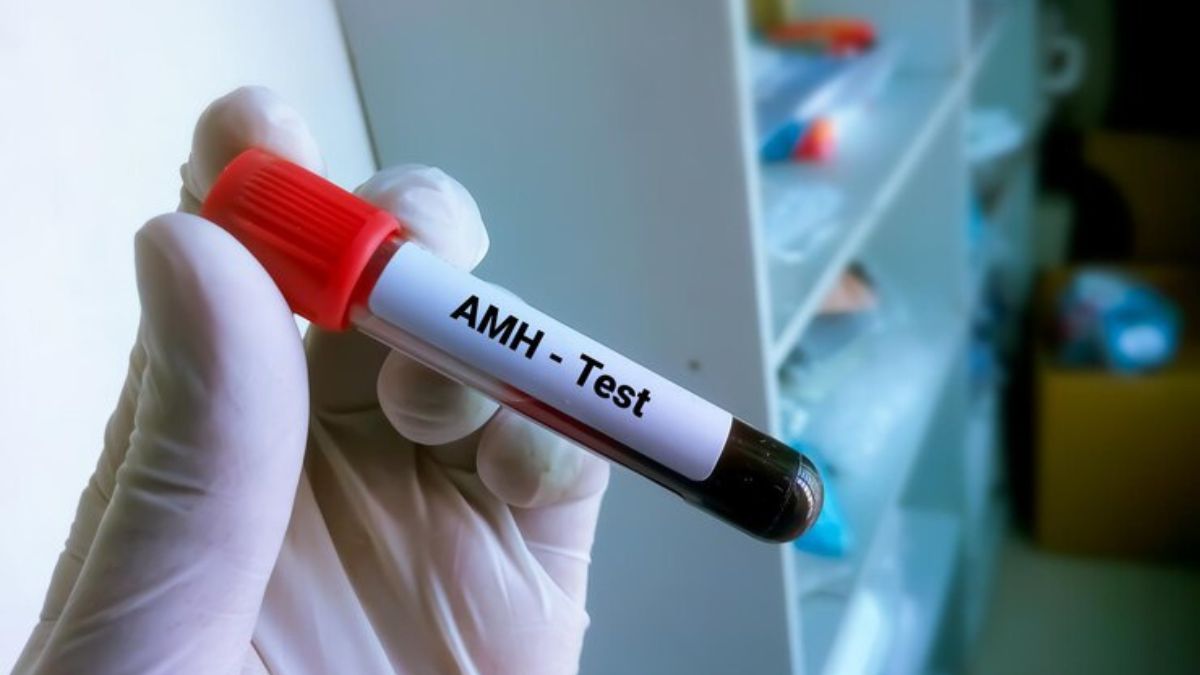
In the realm of reproductive health, one term that often surfaces in conversations is AMH, or Anti-Müllerian Hormone. For anyone navigating the complexities of fertility, understanding AMH can provide crucial insights into reproductive capacity. But what exactly is AMH, and how does it serve as a ‘fertility barometer’? Let us understand it all with expert insights from Dr. Varsha Agarwal, Consultant - Fertility & IVF Specialist at Motherhood Fertility & IVF, Noida.
Table of Content:-
What Is AMH
AMH or Anti-Müllerian Hormone is produced in the ovarian follicles where eggs are developed in the ovaries. The value of AMH in the blood determines how many eggs are there in the ovarian reserve of the woman.
Unlike other hormones that fluctuate during the menstrual cycle, AMH levels remain relatively stable. This makes it a reliable marker for assessing ovarian reserve. The higher the AMH level, the more eggs a woman has, which is generally considered a sign of good fertility. Conversely, lower AMH levels suggest a diminished ovarian reserve, which could mean fewer eggs and potentially reduced fertility.
Also Read: What Is Ovarian Reserve? And Why It Is Important For Conception
AMH: Your Fertility Score
Think of AMH as a fertility score—a numerical value that gives you an idea of where you stand in terms of reproductive capacity. While it’s not the only factor that determines fertility, it plays a significant role. A higher AMH level generally indicates a better chance of conceiving naturally or through assisted reproductive technologies (ART) such as in vitro fertilization (IVF).

However, it’s important to note that AMH alone doesn’t paint the full picture. As per Dr Agarwal, many factors including age, lifestyle, medical history and overall health influence fertility. For instance, a woman with a high AMH level but advanced maternal age may still face challenges in conceiving due to the quality of her eggs.
The Fertility Barometer: Reading Your AMH Levels
So, what do AMH levels actually mean? Here's a general guide:
- High AMH (>4.0 ng/mL): This indicates that you have a high ovarian reserve. However, women who have PCOD also have the AMH level is > 3.5 as their ovaries contain many small follicles.While a high AMH level suggests a good number of eggs, it doesn’t necessarily guarantee high-quality eggs.
- Normal AMH (1.5-3.5 ng/mL): Most women fall into this range. This indicates you have a healthy ovarian reserve and have good chances of getting pregnant. However, age and other factors still play a critical role
- Low AMH (<1.5 ng/mL): A low AMH level may indicate a diminished ovarian reserve, which could mean fewer eggs and potentially reduced fertility. However, it’s not a definitive predictor of infertility. Many women with low AMH levels have successfully conceived, either naturally or with the help of fertility treatments.
Also Read: Conceiving Again: Navigating Second Pregnancy With PCOS
AMH and Fertility Treatments
For women undergoing fertility treatments, AMH levels can be particularly useful. Fertility specialists often use AMH levels to predict how well a woman might respond to ovarian stimulation during IVF. Women with higher AMH levels tend to produce more eggs during stimulation, which increases the chances of a successful IVF cycle.
However, having a high AMH level doesn’t always correlate with a higher success rate. The quality of the eggs is just as important, if not more so, than the quantity. Therefore, while AMH provides valuable information, it’s only one piece of the puzzle.
Beyond the Numbers: What AMH Means for You
While AMH is a valuable tool in assessing fertility, it’s essential to approach it with a nuanced perspective. A low AMH level doesn’t spell the end of your fertility journey, just as a high AMH level doesn’t guarantee success. Fertility is a complex interplay of many factors, and AMH is just one of them.
If you’re concerned about your AMH levels or fertility in general, the best course of action is to consult with a fertility specialist. They can provide a comprehensive assessment, considering all the factors that contribute to fertility. Together, you can develop a plan that’s tailored to your unique situation.
Final Word
AMH is an important marker in the world of fertility, acting as a barometer for ovarian reserve. Understanding your AMH level can empower you with valuable information about your reproductive capacity, helping you make informed decisions about your fertility journey.
Also watch this video
How we keep this article up to date:
We work with experts and keep a close eye on the latest in health and wellness. Whenever there is a new research or helpful information, we update our articles with accurate and useful advice.
Current Version